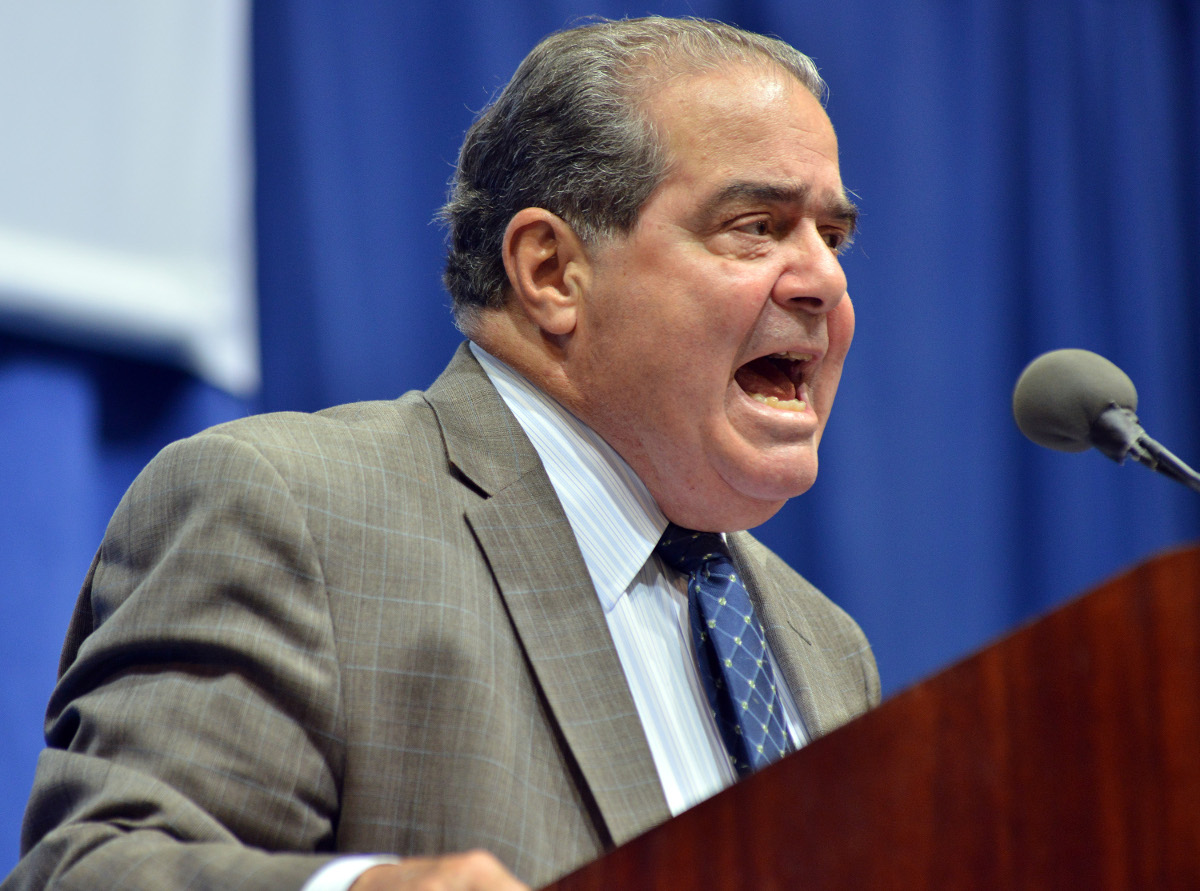Supreme Court Justice Antonin Scalia, Harvard Law Alum, Dead at 79

Scalia speaking at Tufts University. Photo via AP
Supreme Court Justice Antonin Scalia, whose three decades’ worth of bombastic dissent made him one of the most polarizing figures in the court’s history, has died at age 79.
Scalia reportedly died of natural causes not long after attending a party at the Cibolo Creek Ranch in West Texas. His body was discovered in his room after he failed to appear at breakfast Saturday, the New York Daily News reports.
“Justice Antonin Scalia was a man of God, a patriot, and an unwavering defender of the written Constitution and the Rule of Law. He was the solid rock who turned away so many attempts to depart from and distort the Constitution,” Texas Gov. Greg Abbott said in a statement. “We mourn his passing, and we pray that his successor on the Supreme Court will take his place as a champion for the written Constitution and the Rule of Law.”
The Trenton, New Jersey native attended Harvard Law School, where he studied social law and served as notes editor of the Harvard Law Review, which would later elect a 28-year-old Barack Obama as its first black president in 1990. (Scalia would later call the Supreme Court’s decision to uphold Obamacare “interpretive jiggery-pokery.”) He graduated magna cum laude in 1960.
Scalia worked in the Nixon administration before President Ronald Reagan appointed him to the Supreme Court in 1986. He is the first Supreme Court justice to die while serving since Chief Justice William Rehnquist, who passed away in 2005.
The conservative jurist seemed to take great joy in composing scathing, often controversial opinions. In December, he suggested that African Americans would fare better attending a “slower-track school.” When the Supreme Court legalized same-sex marriage last summer, Scalia called the court a “threat to democracy,” and its decision “pretentious” and “egotistic.”
“Who ever thought that intimacy and spirituality [whatever that means] were freedoms?” he wrote. “And if intimacy is, one would think that Freedom of Intimacy is abridged rather than expanded by marriage. Ask the nearest hippie.”


